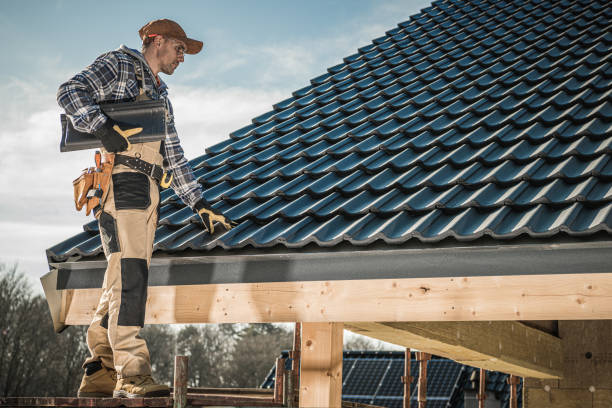Choosing the right roofing contractor is a crucial step in ensuring that your roofing project is handled with expertise, professionalism, and attention to detail. Here’s a deeper dive into the process of selecting a contractor who will meet your needs and deliver a high-quality roof.
Understanding Your Roofing Project
Begin by clearly identifying the specifics of your roofing project. Determine whether you require a new roof installation, a replacement of an old roof, or repairs to an existing one. Each type of project requires different approaches and expertise. For example, installing a new roof might involve a more complex process than replacing or repairing an existing one. Additionally, decide on the type of roofing material that suits your preferences and budget, whether it be asphalt shingles, metal roofing, tile, or flat roofing systems. This information will guide your discussions with contractors and help them provide accurate estimates.
Gathering and Assessing Recommendations
Start by gathering recommendations from trusted sources such as friends, family, and neighbors who have recently had roofing work done. Personal referrals can provide valuable insights into a contractor’s reliability and the quality of their work. Additionally, use online review platforms such as Google, Yelp, and Angie’s List to read customer reviews and ratings. Look for contractors with a strong track record of positive feedback and consistent high ratings. Pay attention to comments about workmanship, communication, and overall customer satisfaction.
Conducting Interviews and Evaluations
With a list of potential contractors, arrange for Silvis roofing contractor interviews or consultations. This is your opportunity to assess their expertise and compatibility with your project. Prepare a list of questions to ask each contractor, including:
- Experience and Specialization: What is your experience with this type of roofing project? Are you familiar with the specific materials I want to use?
- References and Portfolio: Can you provide references from recent projects or show examples of your previous work?
- Problem-Solving: How do you handle unexpected issues or complications during the project?
- Project Management: What is your approach to managing the project timeline and ensuring minimal disruption?
Evaluate their responses for professionalism, thoroughness, and transparency. A reliable contractor should be able to provide clear and concise answers that demonstrate their expertise and commitment to quality.
Verifying Credentials and Insurance
Verification of a contractor’s credentials is a vital step in ensuring their legitimacy. Confirm that the contractor holds a valid license and is up-to-date with local regulations. A licensed contractor adheres to required building codes and standards. Additionally, check that the contractor has adequate insurance coverage, including liability insurance and worker’s compensation. Liability insurance protects you from potential damages to your property, while worker’s compensation covers any injuries sustained by workers on the job. Request proof of these insurances and verify them with the respective agencies if necessary.
Discussing Materials and Warranties
Discuss the types of roofing materials the contractor recommends and ensure they align with your needs and preferences. A contractor with strong relationships with reputable suppliers is more likely to offer high-quality materials and competitive pricing. Ask about the warranties provided for both the materials and the workmanship. Manufacturer warranties typically cover defects in materials, while contractor warranties cover errors in installation. Ensure you understand the terms, coverage, and duration of these warranties.
Reviewing and Comparing Estimates
Obtain detailed written estimates from multiple contractors. Each estimate should include a comprehensive breakdown of costs, including materials, labor, and any additional charges. Compare these estimates to determine the best value for your investment. While a lower price might be tempting, consider the overall quality of materials and workmanship. Assess the estimates in conjunction with the contractor’s reputation and experience. The cheapest option may not always offer the best long-term benefits.
Understanding and Finalizing the Contract
Before signing a contract, carefully review all terms and conditions. The contract should clearly outline the scope of work, materials to be used, project timelines, payment schedule, and warranty information. Ensure that all terms are explicitly defined and that you understand both your obligations and the contractor’s responsibilities. Avoid paying the full amount upfront; instead, agree on a payment schedule that corresponds with key project milestones.
Monitoring the Project
Throughout the project, maintain regular communication with the contractor. Request periodic updates on progress and address any concerns promptly. Inspect the work at various stages to ensure it meets the agreed-upon standards and specifications. Regular communication and inspections help prevent misunderstandings and ensure that the project remains on track.
Conducting a Final Inspection
Once the project is completed, conduct a thorough final inspection with the contractor. Verify that all aspects of the job meet your expectations and that there are no unresolved issues. Ensure that any agreed-upon punch list items are addressed before making the final payment. Keep detailed records of all communications, payments, warranties, and any changes made during the project. These records will be useful for future reference and potential warranty claims.
Conclusion
Selecting the right roofing contractor involves a detailed process of research, verification, and evaluation. By understanding your needs, gathering recommendations, verifying credentials, and carefully reviewing estimates and contracts, you can ensure a successful roofing project. A reputable contractor will provide high-quality workmanship, offer valuable advice, and deliver ongoing support, ensuring that your home is well-protected and your investment is secure. With these steps, you can make an informed decision and achieve a roofing solution that meets your expectations and enhances the value and safety of your home.
